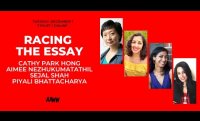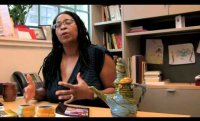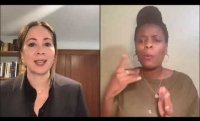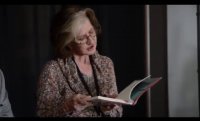With a new month on the horizon, we’re looking ahead to contests with deadlines of March 14 or March 15. These awards offer opportunities for poets, fiction writers, and nonfiction writers! The contests include awards that celebrate women writers over the age of 40 and Latinx poets; all offer cash prizes of $1,000 or more, with opportunities for a handful of lucky winners to receive $10,000.
Airlie Press Prize: A prize of $1,000 and publication by Airlie Press is given annually for a poetry collection. The editors will judge. Deadline: March 15. Entry fee: $25.
Bellingham Review Literary Awards: Three prizes of $1,000 each and publication in Bellingham Review are given annually for works of poetry, fiction, and creative nonfiction. The 49th Parallel Award for Poetry is given for a poem or group of poems. The Tobias Wolff Award for Fiction is given for a short story or a flash fiction piece. The Annie Dillard Award for Creative Nonfiction is given for an essay or a flash nonfiction piece. All entries are considered for publication. Deadline: March 15. Entry fee: $20.
Colorado Review Nelligan Prize for Short Fiction: A prize of $2,500 and publication in Colorado Review is given annually for a short story. Ramona Ausubel will judge. All entries are considered for publication. Deadline: March 14. Entry fee: $15 ($17 for online submissions).
Fourth Genre Steinberg Memorial Essay Prize: A prize of $1,000 and publication in Fourth Genre is given annually for an essay. Mary Cappello will judge. All entries are considered for publication. Deadline: March 15. Entry fee: $20.
Hidden River Arts Eludia Award: A prize of $1,000 and publication by Sowilo Press is given annually for a first book of fiction by a woman writer over the age of 40. Deadline: March 15. Entry fee: $20.
James Jones Literary Society First Novel Fellowship: A prize of $10,000 is given annually for a novel-in-progress by a U.S. writer who has not published a novel. Runners-up will each receive $1,000. Deadline: March 15. Entry fee: $33.
National Poetry Series Open Competition: Five prizes of $10,000 each and publication by participating trade, university, or small press publishers are given annually for poetry collections. The 2022 publishers are Beacon Press, Ecco, Milkweed Editions, Penguin Books, and University of Georgia Press. Deadline: March 15. Entry fee: $35.
Prairie Schooner Raz-Shumaker Book Prizes: Two prizes of $3,000 each and publication by University of Nebraska Press are given annually for a poetry collection and a short story collection. Kwame Dawes will judge. Deadline: March 15. Entry fee: $25.
Robinson Jeffers Tor House Foundation Poetry Prize: A prize of $1,000 is given annually for a single poem. Forrest Gander will judge. Deadline: March 15. Entry fee: $10.
University of Notre Dame Andrés Montoya Poetry Prize: A prize of $1,000 and publication by University of Notre Dame Press is given biennially for a debut poetry collection by a Latinx poet residing in the United States. Alexandra Lytton Regalado and Sheila Maldonado will judge. Deadline: March 15. Entry fee: None.
Verse Tomaž Šalamun Prize: A prize of $1,000 and publication by Factory Hollow Press is given annually for a poetry chapbook. The winner will also receive a monthlong residency in summer 2023 in a private apartment at the Tomaž Šalamun Center for Poetry in Ljubljana, Slovenia. Prose poetry, hybrid works, and translations of works of poetry by living writers from any language into English are also eligible. Ilya Kaminsky will judge. Deadline: March 15. Entry fee: $17 ($13 for students).
The Word Works Washington Prize: A prize of $1,500 and publication by the Word Works is given annually to a U.S. or Canadian poet for a poetry collection. Deadline: March 15. Entry fee: $25.
Visit the contest websites for complete guidelines, and check out the Grants & Awards database and Submission Calendar for more contests in poetry, fiction, and creative nonfiction.








